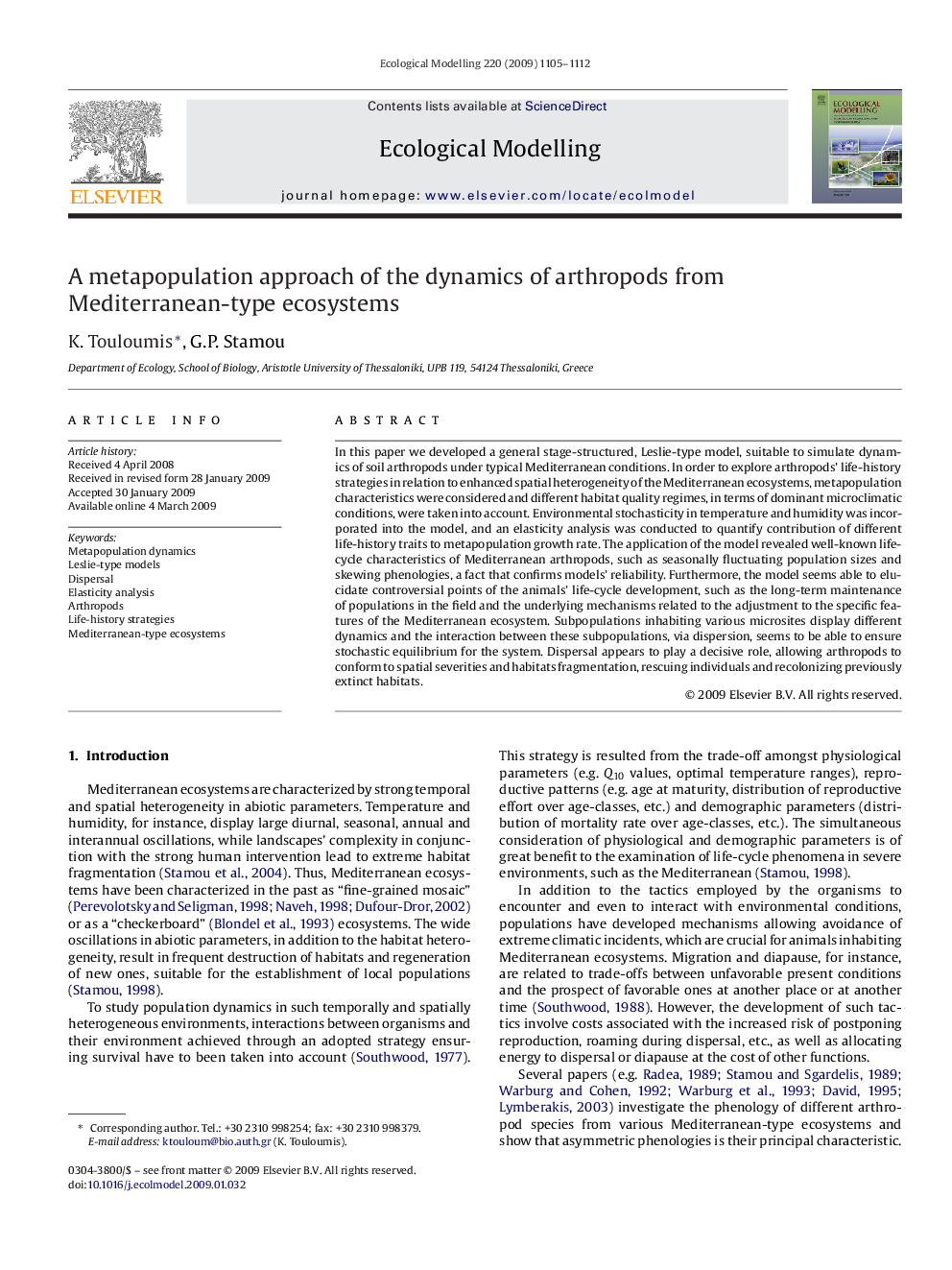| Article ID | Journal | Published Year | Pages | File Type |
|---|---|---|---|---|
| 4377843 | Ecological Modelling | 2009 | 8 Pages |
Abstract
In this paper we developed a general stage-structured, Leslie-type model, suitable to simulate dynamics of soil arthropods under typical Mediterranean conditions. In order to explore arthropods' life-history strategies in relation to enhanced spatial heterogeneity of the Mediterranean ecosystems, metapopulation characteristics were considered and different habitat quality regimes, in terms of dominant microclimatic conditions, were taken into account. Environmental stochasticity in temperature and humidity was incorporated into the model, and an elasticity analysis was conducted to quantify contribution of different life-history traits to metapopulation growth rate. The application of the model revealed well-known life-cycle characteristics of Mediterranean arthropods, such as seasonally fluctuating population sizes and skewing phenologies, a fact that confirms models' reliability. Furthermore, the model seems able to elucidate controversial points of the animals' life-cycle development, such as the long-term maintenance of populations in the field and the underlying mechanisms related to the adjustment to the specific features of the Mediterranean ecosystem. Subpopulations inhabiting various microsites display different dynamics and the interaction between these subpopulations, via dispersion, seems to be able to ensure stochastic equilibrium for the system. Dispersal appears to play a decisive role, allowing arthropods to conform to spatial severities and habitats fragmentation, rescuing individuals and recolonizing previously extinct habitats.
Keywords
Related Topics
Life Sciences
Agricultural and Biological Sciences
Ecology, Evolution, Behavior and Systematics
Authors
K. Touloumis, G.P. Stamou,
